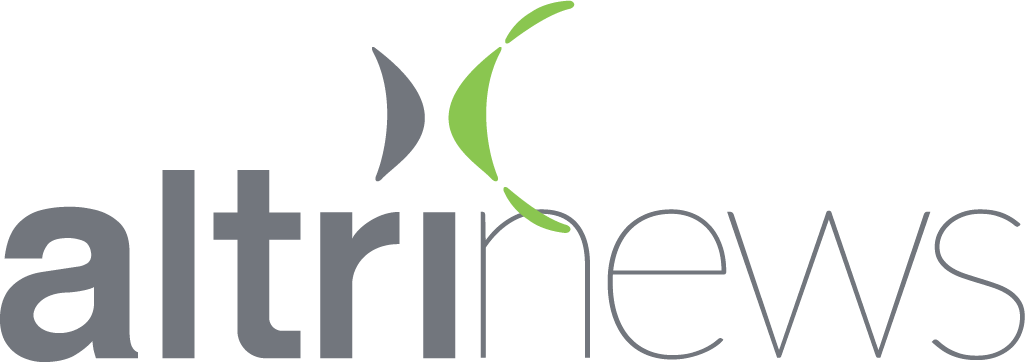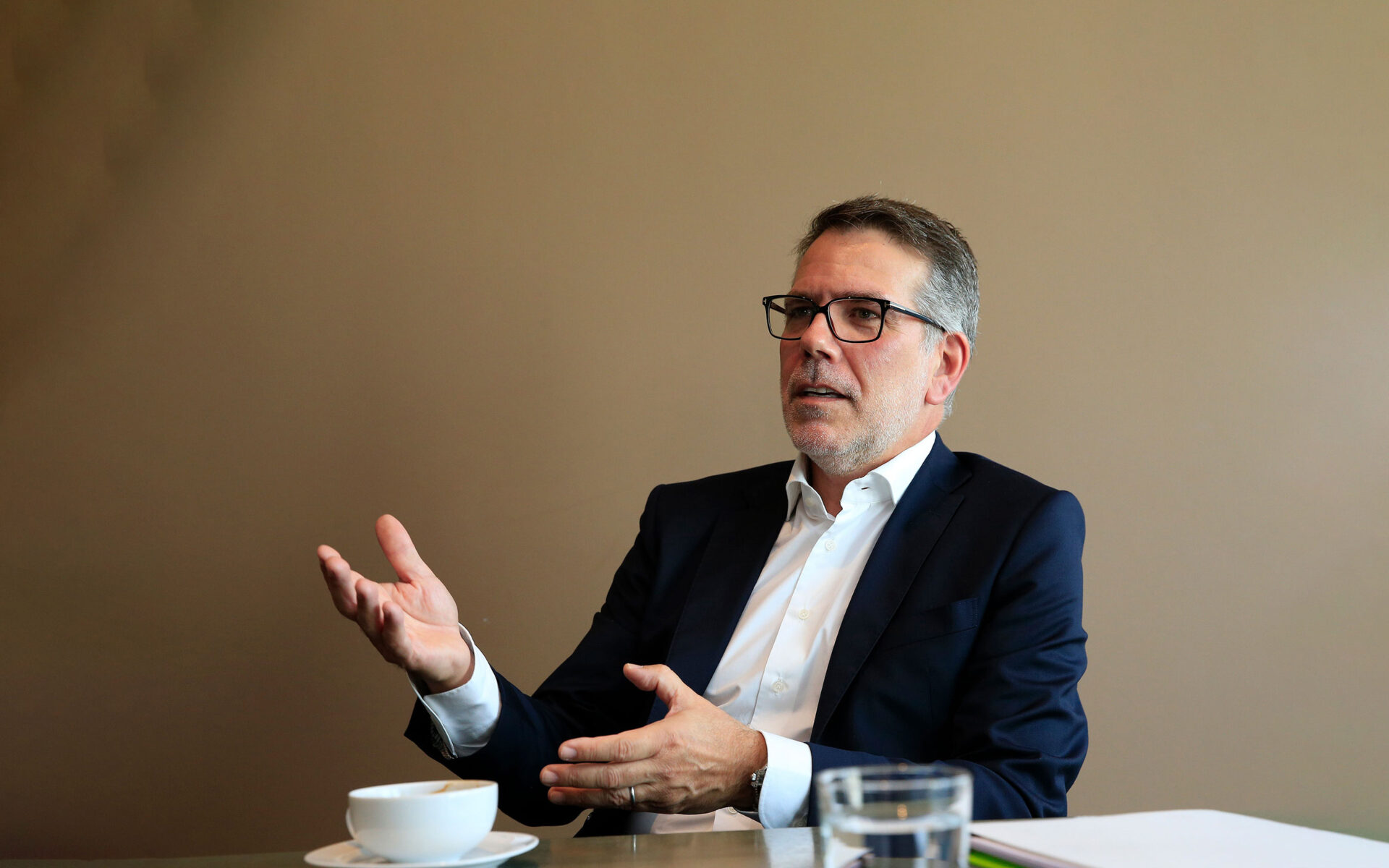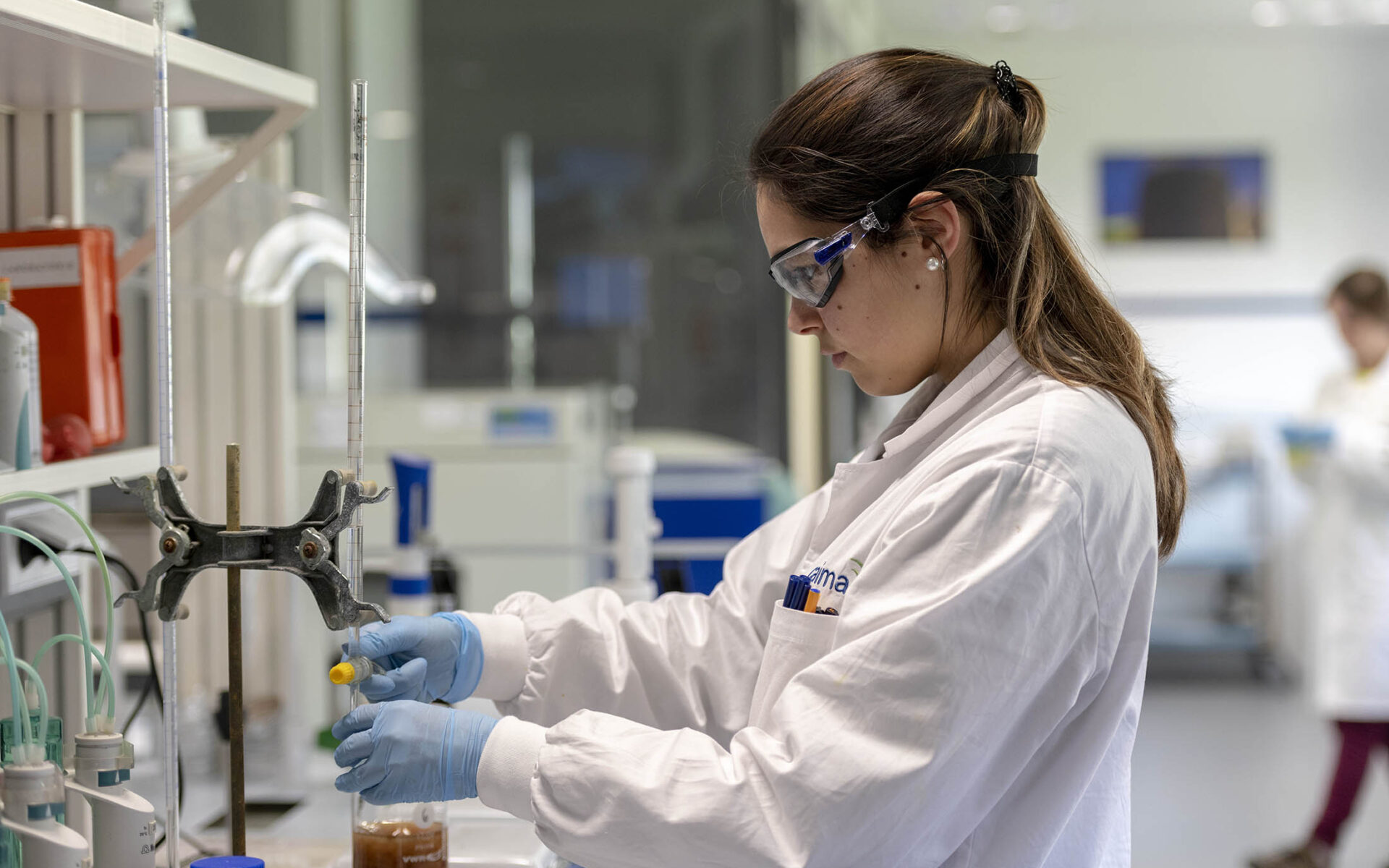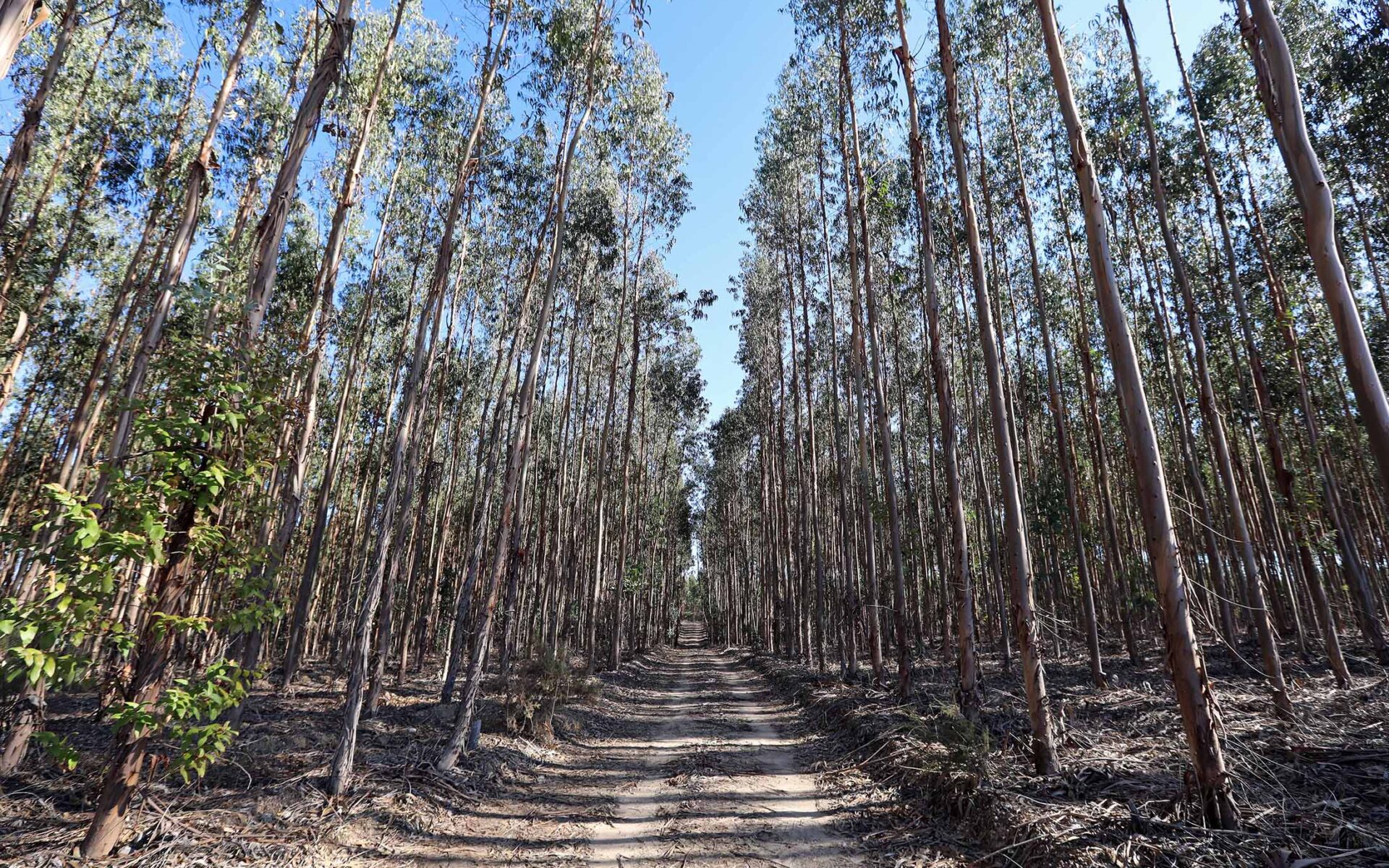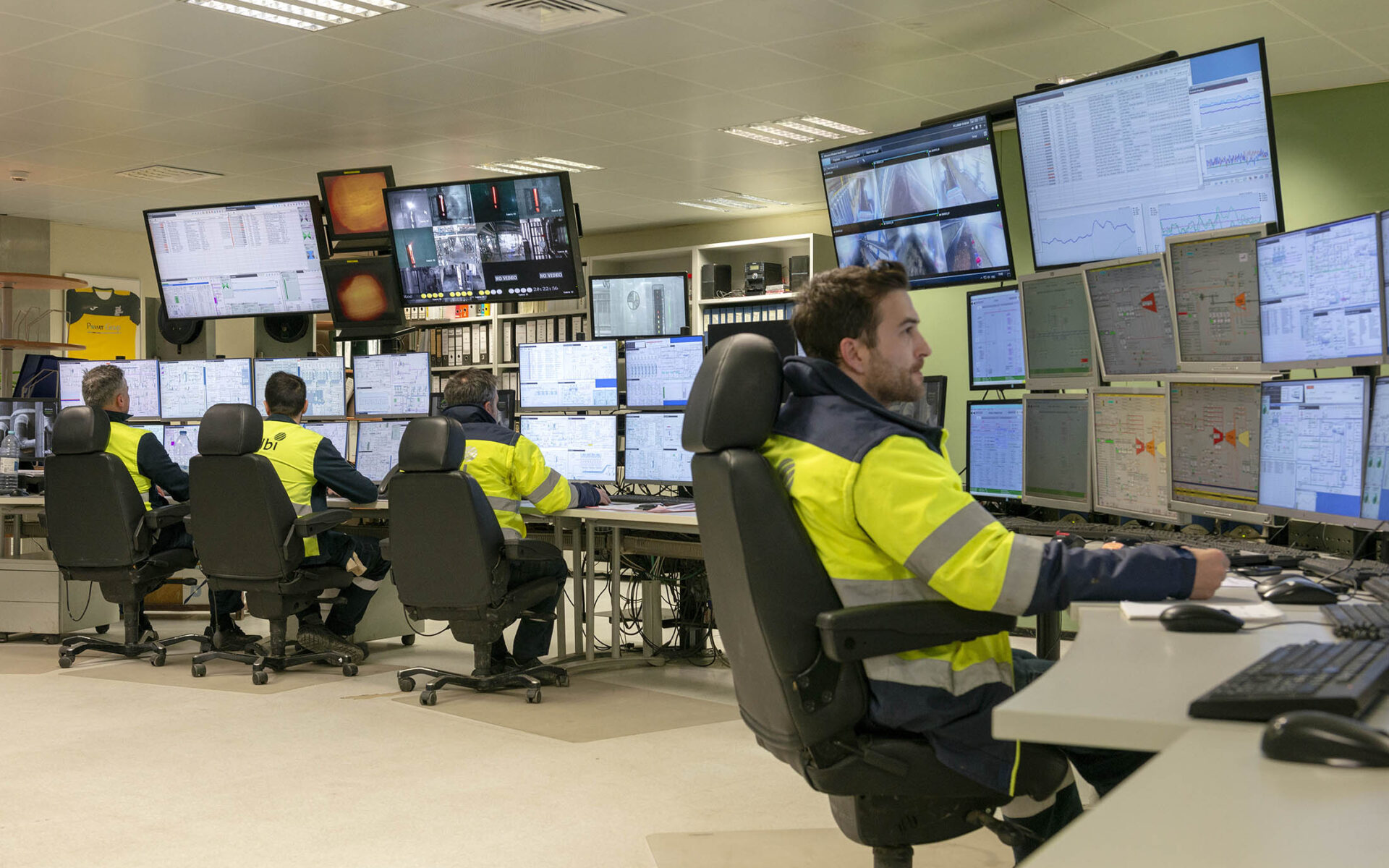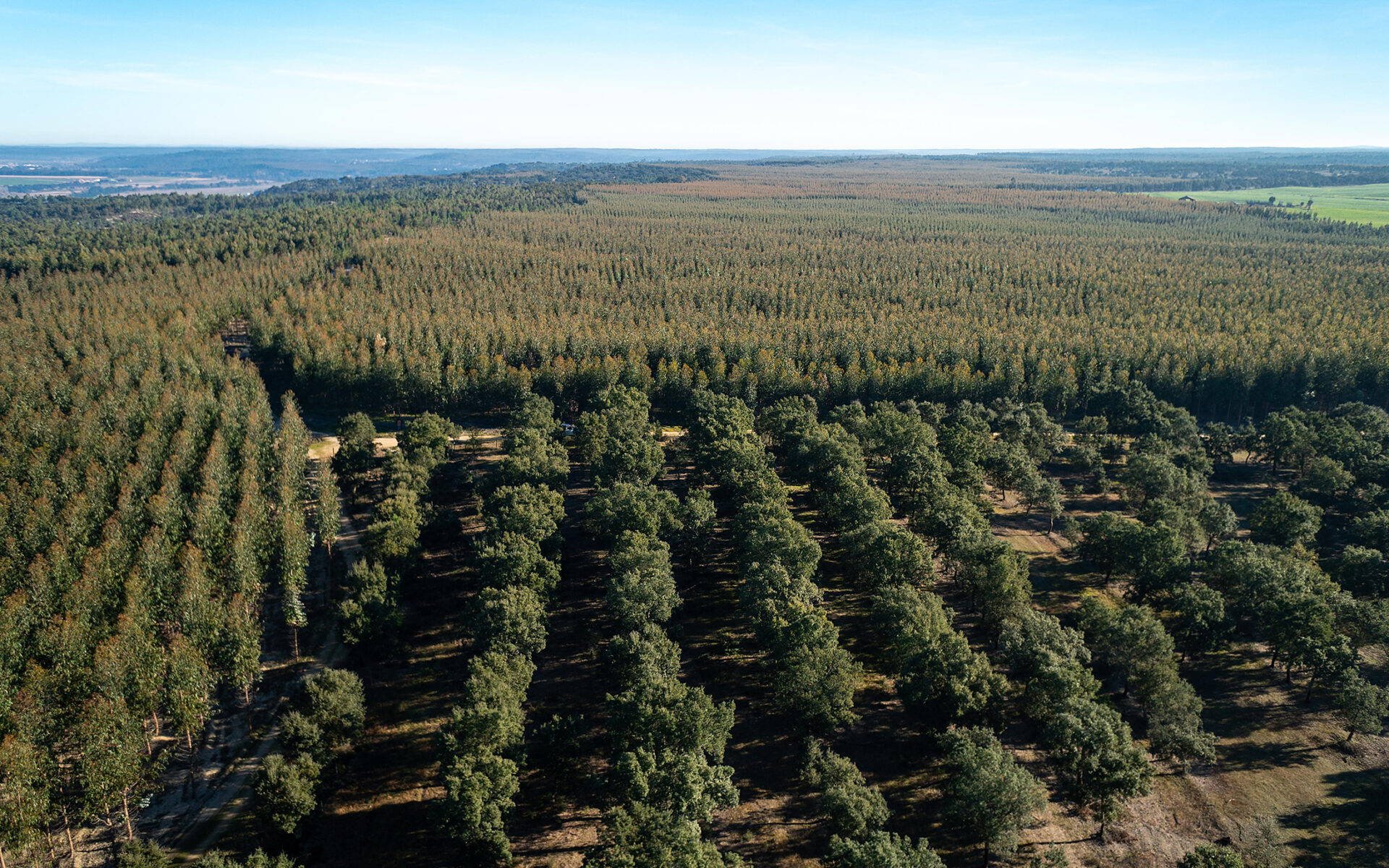Getting Altri ready for a new stage of growth
The new CEO’s mission is to lay the foundation for the Group’s long-term strategic development.
José Soares de Pina’s knowledge and management experience, gained throughout his career in several worldwide locations and in different markets, are what set him on the path to Altri. The Group’s new Chief Executive Officer (CEO) points out that the drivers of growth of the different industries do not vary greatly from sector to sector. As well as providing quality products, companies need to create value and fulfil their customers’ needs.
José Soares de Pina acknowledges that, given recent changes, it’s only to be expected that Altri’s employees are wondering which direction the Group will be following. It’s important that they feel this is where they want to be, and he believes that the only way to attract the talent required to reach the desired destination is to create a culture which is equitable, transparent, open and transformative, capable of helping the Group to evolve comprehensively.
A culture which is not restricted to the space within the organisation, but which encompasses the communities in which it operates and its stakeholders. The new CEO feels that the paper pulp industry should be embraced and developed by the Portuguese, as it is an industry which has worldwide cachet, and the raw material it employs is one of the most versatile in the world. In Portugal, the sector is creating a truly circular and more sustainable economy.
Furthermore, it is important to keep an eye on the future and continue to work on Altri’s growth. This is the starting point for our interview with José Soares de Pina.
What are the key factors for an organisation to be successful?
For any organisation, in any industry, there are two factors which I consider to be vital. The first is being very keenly focused on the customer. It’s important to be able to fulfil customers’ needs in the best possible way. The second is the context surrounding the company and its personnel. When an organisation has talent, is united, has a great capacity to create value and is competent, then it’s capable of being competitive and providing its customers with added value.
Much of your career was spent overseas working in American multinationals. What was your first impression of Altri?
I thought it was a successful Group, focused on continuous improvement and very much customer-orientated. It’s proud of its journey, and is very cooperative and is very straightforward in its interactions.
What did you find at the Altri Group?
I found a group undergoing change. Although it is very centred around creating value in order to operate as efficiently as possible, the group is the result of various different components which have their own specific identity. Altri has resulted from a series of acquisitions, which has inevitably left a legacy. This situation is perfectly normal and has come about because each company has its own unique culture. In the last few years, the group began to integrate the organisation’s BackOffice, which makes sense. The organisation which has been heading up the group was able to make the necessary decisions, at the right times, in order to improve performance and continue to grow in a robust and sustainable fashion.
Will this integration continue?
We no longer have three operating management departments at Altri, we just have one. We don’t have three supply management departments, just one. The group’s future doesn’t involve eliminating these cultures, as having them all together is what makes Altri strong.
What’s important is that the entire structure and the leaders of the different areas of operation are sufficiently open, in order to achieve the group’s aspirations. This is where I can see the various different units gradually transforming.
It’s a process which has to run its natural course. Of course it takes time, but it’s very important so that we can look towards the future of the Altri Group in three or five years’ time.
What are the Altri Group’s expectations on that time scale?
Three to five years from now, I would like us to be a group of Portuguese origin but with a multinational footprint. With a presence which is broader, and more focused and consolidated on what we do well. A more diversified group, and more sustainable and more digital, where the whole is greater than the sum of its parts. We are moving towards that. We are a Portuguese group, with a Portuguese industrial base, essentially working in the European market. We are a benchmark within this industry.
How do you intend to achieve growth for the group which is greater than the sum of its parts?
In order to continue growing we have to diversify our portfolio. We are lucky to work with a product – cellulose – which is extremely versatile. It can be used in countless industries. As well as being used to make paper, it can also be used in fabric for clothes, in the pharmaceutical industry, in dietary fibre, in the production of components for the automobile industry, and also for cladding material. These are just a few examples of its applications.
Portugal is in a unique position in terms of the worldwide cellulose industry. We are competing within the global market, going up against much larger companies with more resources, because we use domestically-produced renewable raw material, and have state-of-the-art technological skills which enable us to export around 90% of what we produce.
It’s important to be able to leverage this competitive position, by looking outwards and competing in more diverse and attractive markets, but always with a view to adding value.
What limits the implementation of this vision?
We work with a raw material that is limited. There is much to be done in this area. We are investing a lot – us and others who operate within this industry – in developing a forest which affords efficient production, with features which will allow us to maximise the opportunity.
Many of the over 900,000 hectares of eucalyptus forest in Portugal are low production. These tracts of land aren’t optimised, they haven’t been cleared, they’re not cared for and they don’t get fertilised.
The work undertaken by CELPA, with initiatives such as the Better Eucalyptus project or the Clear and Fertilise programme, provides opportunities to increase the value of these areas by increasing production of raw material.
If there’s a lack of raw material, is the idea to look abroad?
The thought of spreading out to other locations is attractive, but it has to happen in its own time and under the right conditions. The group grew via acquisitions. It was able to magnify and leverage these acquisitions, as well as to make a significant investment effort, which has taken us to a very high level of performance in our industry.
Altri took over existing units which had skills and a good production capacity, and scaled them up. The investments made in recent years yielded a very high return. They were very well applied, and were appropriate to meet the needs and to fulfil the group’s ambition to grow within Portugal and beyond.
There aren’t many industries in Portugal with the dimension, presence and international competitiveness of ours. It would be a waste not to leverage this opportunity. In order to implement this vision, we have to start to prepare our base of operations to develop our participation in other areas, bringing skills which were developed and perfected within our units.
What did the shareholders ask of you?
They asked me to continue to add value to that already created, and simultaneously to look towards the future and envisage the group’s strategic development in the long term. To achieve this we need to create a solid base from which to embark on the next stage of development for Altri. We are a very efficient Group with extraordinary skills, but this development is a path we need to keep treading. We mustn’t stop.
The process of continuous improvement has to be ingrained in our DNA. We have very strong international competition and we mustn’t lose sight of the gains we have made up to now. We will continue on this path of strong growth based on improving operational performance and taking advantage of new digital technologies.
How can improved performance be achieved when it is already very productive and efficient?
A few years ago we introduced the Kaizen process to improve efficiency. We are now centred around digital transformation, which may enable our operations to be increasingly efficient and more integrated and which will allow us to have a more solid basis from which to start this new growth phase.
We also need to develop a strong emphasis on sustainability and on the circular economy at every level, and to be more objective in introducing what we are already doing well into our value proposition for all our stakeholders.
In terms of organisation, we must carry on leveraging the professionalisation of the group, focusing on developing talent and people, and continue to enhance our spirit of cooperation, thereby creating a more cohesive and solid group.
What role does innovation play at Altri?
We formed an Innovation Management Department which works to identify opportunities to diversify our portfolio, both in terms of process and product. There may be innovation within existing processes.
Our pulp production process creates by-products which may be developed to be sold on the market. Using our technological skills and existing industrial base, we can also take the opportunity to develop new products, such as, for example, using waste products as nutrients in our forest operations, or focusing on the circular economy.
What role does sustainability play in Altri’s longterm growth model?
I consider the sustainability and safety of our operations as operating licences. In the past, this industry was associated with practices which didn’t look towards the long term. But extraordinary efforts have been made in the last two decades, together with a sustained development, not only in terms of the communities in which we operate but also in the way we work and add value to our customers and different stakeholders.
Altri has made significant investments in the last few years to ensure its operations are efficient, safe and sustainable in its environmental, social and economic aspects.
There’s no avoiding this subject. What impact has the covid-19 pandemic had on Altri’s business?
There are two major components: one is the external impact on the markets in which we operate; and the other is the internal impact on the way we work. As regards the latter, the group was able to structure and prepare itself very diligently in order to prevent any potential cases of infections which would shut down our factories and forest operations. Internally, our emphasis was on ensuring operational resilience, by creating more redundant processes in terms of production, movement of staff and the way in which we operate. We adopted all the basic mitigation measures to combat the spread of the virus, such as the mandatory use of the mask and the disinfection of spaces, but also teleworking whenever possible and time difference.
We have also implemented prevention and screening protocols and, more recently, rapid tests. Although this was more operationally complex, everyone came together in the spirit of cooperation throughout the organisation, with positive results, and I want to take this opportunity to acknowledge this effort and thank all our employees.
And how did the pandemic affect the external market and business?
If we look at the paper and tissue segments, which are two major pulp markets, we can see they both behaved very differently. Confinement and restrictions on movement meant that paper consumption fell substantially. The market hasn’t settled down yet, and will require a period of recovery, which we hope will happen quickly.
But I think in the end there will be a structural impact on demand for paper, which is hard to estimate. Regarding the downturn, I think it may have reached 30%. It was a different story for tissue.
There are two segments to this product – domestic and away from home. The latter fell sharply, owing to confinement, since substantially fewer people were going to school, to their offices, or travelling for tourism. This slack was partially picked up by the domestic market, which saw a sharp growth, as a result of people spending more time at home and being more fastidious with cleanliness and hygiene.
Again, we will have to wait and see what impact this behaviour will have in structural terms. Tissue rises on average by 3% to 5% every year, unlike paper which falls around 3% per year. Right now, tissue demand on the domestic market has settled, but has remained lower in the away from home segment.
Is there a message you would like to give to Altri’s employees?
Above all, a word of assurance. Although we are going through an unprecedented and hugely complex time, the great competence and commitment of everyone who works at Altri means that we can face the future with even more confidence. A business group of the size and presence of Altri knows what its responsibilities are, and will always place the sustainability of its operations and the health and safety of its employees, as well as the wellbeing of the surrounding communities, as a top priority.
